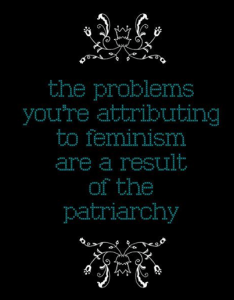Happy International Women’s Day!
A little late, I know. I meant to write an International Women’s Day post – but you know – life gets in the way sometimes.
I love International Women’s Day. I love that we celebrate women. I love that women everywhere write and post about women’s activism, feminism, women’s history and women’s achievements.
And I think it also takes me back to 1975 – International Women’s Year. I was a young woman then – knew very little about women’s liberation and what oppression of women meant. But I remember being awed and excited about future possibilities and what it might mean to have a year for women.
So I have celebrated International Women’s Day every year.
Back in 1975 we were in the era of what is now known as the second wave of feminism. Back then we called it women’s liberation.
But according to Eva Cox: Feminism has failed and needs a radical rethink.
She’s right when she says that second wave feminists were pushing for radical change:
“We understood that real gender equity would require radical changes to macho cultural power structures. So we planned and discussed the ways we could revalue what matters and eliminate gender-biased, macho-designed cultural dominance.”
And she is also right that women, in Simone de Beauvoir’s words, are still the ‘other’.
Women are still being killed by male violence; women are still impoverished; discriminated and oppressed!
But to blame feminism – to decide that feminism has failed us? Feels like blaming the victim.
Do I wish that we had rid ourselves of patriarchy? That we had fundamentally changed the structure of our world so that oppression of everyone no longer existed? Yes I do. Believe me there are still plenty of women working on this.
Identifying as a feminist does not mean that one understands what feminism really means.
In fact what has happened is that patriarchal capitalism has fought back. It has usurped the word feminism to mean something that women’s liberation would not accept.
As Meghan Murphy has recently written:
“Whereas, in the past, our fight against male supremacy and towards women’s liberation meant something radical — and therefore frightening — to those who preferred the status quo, recent decades have brought a distinctly “feel-good” approach. Feminism hasn’t escaped a neoliberal, consumerist culture that offers self-help books and positive mantras as a solution to social problems and presents individual “choice” as the epitome of freedom. What was once a class struggle – a fight for women’s collective rights and towards an end to the oppressive system of patriarchy – and certainly a political one, became a hashtag, a selfie, a backdrop, a selling-point, a buzzword. Anyone could say, “Yes! I’m a feminist!” and be applauded, without really understanding what that should mean.”
It is neo-liberals’ capturing of the word feminism and using it to their own ends that has altered what is assumed to be feminism. Eva Cox conflates what neo-liberalism has done, in their backlash to feminism, with a failure of feminism.
It is just more of the same from patriarchy – at every step patriarchy will fight back against women’s liberation. It is not feminism that has failed – it’s just more of the same from patriarchy.
To quote a feminist friend – rather than a failure of feminism it is the success of male domination.
And Eva ignores the continued struggle of radical feminism.
“Our once radical social movement has been diverted into good works such as women’s refuges, counting female victims of violence and calling out sexism. While all these are necessary, there is little focus on offering serious alternatives.”
Cox’s article dismisses and diminishes the work that feminism has achieved, as “good works”.
The establishment of safe places for women escaping male violence, highlighting the horrific deaths of women at the hands of men and raising awareness about the everyday sexism and misogyny that women experience and are damaged by – this is the vital work that has been achieved by the feminist movement. And feminists are still contesting prostitution, sex trafficking, surrogacy, female genital mutilation, pornography amongst many other harms to women etc, etc…
We are very aware of the neo-liberal attempts to undermine the important work that feminists have achieved –
“…the defunding of progressive women’s services; the growing divisions between different types of services; funding and output measurement tools focusing on individual change; and the sharp shift in the provision and focus of services, away from a social recognition of men’s violence against women and towards an individual pathology of women’s poor choices and victimisation. In fact women’s services are currently at serious risk of being de-politicised.” (Hume, McInnes, Rendell & Green 2011).
And no doubt, as Meghan Murphy has outlined, the individualising of feminism – the idea of individual choice and empowerment has reconfigured feminism as a populist term turning it into a “depoliticised” concept.
“It’s no coincidence that a term directly associated with women has become depoliticised, coopted, and associated with personal empowerment. Women have always been the target of the self-help industry and “empowerment” is a vague enough term that it could be (and has) been embraced by industries that couldn’t care less about fighting systemic oppression, in part because they profit directly from said oppression.”
Unfortunately Eva Cox’s article reinforces this co-option of feminism – by blaming feminism for its “wrong direction”. The article fails to address this co-option of ‘feminism’ by patriarchal, capitalism.
“The feminist movement is a political movement that fights towards women’s collective liberation and towards an end to male violence against women. That is to say, if you don’t support those goals, what you are doing is not feminism, no matter how many times you claim otherwise.” Meghan Murphy
And the danger of Eva Cox’s analysis is that this can be used against us – against women, against women’s liberation.
Her question – “Can some good feminist ideas reignite the light on the hill…”? fails to understand that only good feminism (i.e. radical feminism) is “reigniting” and has been throughout feminist history.
As Finn Mackay has commented, our movement is based on complex political theory and continues to be developed and defined but always working towards change.
International Women’s Day/Month gives us the opportunity to celebrate our history and achievements. Eva Cox has unfortunately by making the claim that feminism has failed has fallen into the patriarchal trap of the misappropriation of feminism.
In doing so she is discounting our history and our achievements and the on-going struggles of radical feminism and has become part of the backlash against feminism
“Because the mere presence of our language in the mainstream, does not mean that it is correctly used, much less widely understood, sometimes the very opposite.”
“As feminists we need to be aware of what feminism means for us. Just having the word in regular usage does not mean that the revolution is on its way. In fact it can mean that feminism and women’s oppression becomes diluted and meaningless. And of course that is what patriarchy would really like. It then becomes part of the backlash against feminism.” Finn Mackay




2 Responses
I disagree that her article discounts feminist achievements and that it “reinforces the cooption of feminism.” As an older woman who was influenced by second wave feminism, I agree with her that feminism has failed – it has failed to achieve anything more than nominal legal equality, because it has been railroaded by neoliberalism, with many women who call themselves feminist citing neoliberal truisms. She is simply saying that feminism is nothing without a focus on class analysis and an understanding of how capitalism works against women. Her points for reigniting a more powerful feminist push are valid and need to be considered. They address the real, practical concerns that women face every day and they are inextricably tied to the challenging of capitalism in general.
Learning a ton from these neat arltcies.